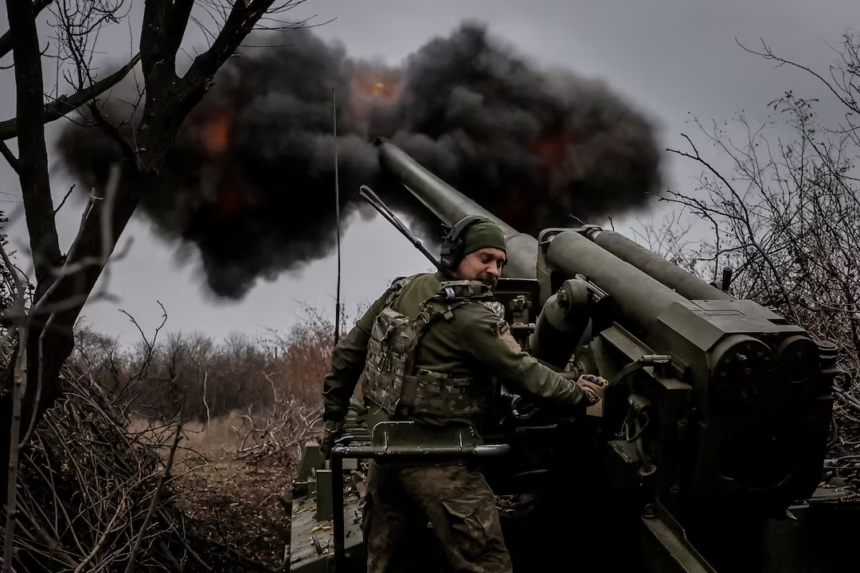KYIV, Dec 3 (Reuters) – On the 30th anniversary of the 1994 Budapest Memorandum, Ukraine has condemned the agreement under which it relinquished its nuclear weapons in exchange for security assurances that never materialized. Kyiv is now intensifying its efforts to secure an invitation to join NATO, seeking stronger protection amid the ongoing Russian invasion.
In a statement issued by Ukraine’s foreign ministry, the government pointed to the Budapest Memorandum as a “monument to short-sightedness in strategic security decision-making.” The 1994 agreement, signed by Ukraine, the United States, the United Kingdom, and Russia, ensured Ukraine’s commitment to give up its nuclear arsenal, which was the third-largest in the world at the time, in return for assurances of security and sovereignty.
“Today, the Budapest Memorandum should serve as a reminder to the current leaders of the Euro-Atlantic community that building a European security architecture at the expense of Ukraine’s interests is destined to failure,” the statement read. This condemnation comes as the war in Ukraine continues, with Kyiv facing increasing fears of Russian aggression, particularly as the U.S. presidential election results raise concerns about the potential for a quick resolution that could leave Ukraine exposed.
Since Russia’s 2014 invasion of Crimea and its support for separatist forces in eastern Ukraine, Ukraine has denounced the Budapest Memorandum, seeing it as a failed guarantee of sovereignty. Despite calls for dialogue, Kyiv has been cautious about returning to negotiations like those under the Minsk agreements, which brought temporary ceasefires but ultimately failed to halt Russian advances.
Ukrainian President Volodymyr Zelenskiy has been vocal about the shortcomings of the agreement, stating, “Enough of the Budapest Memorandum. Enough of the Minsk Agreements. Twice is enough, we cannot fall into the same trap a third time. We simply have no right to do so.”
As the war drags on, Ukraine is pushing hard for NATO membership, seeking stronger and more robust security guarantees to defend itself against Russian aggression. The prospect of Ukraine’s accession to NATO is becoming more pressing, as fears mount over potential shifts in Western policy, especially with the incoming U.S. administration under Donald Trump, which may pursue a more isolationist stance or seek a rapid peace deal with Russia.
With continued Russian threats and a volatile global situation, Ukraine’s call for NATO membership is likely to be a significant issue in upcoming international discussions. The 30th anniversary of the Budapest Memorandum marks a critical juncture in Ukraine’s pursuit of stronger international support.







